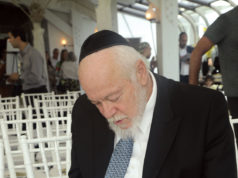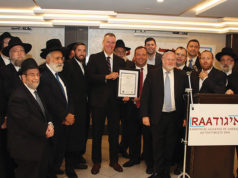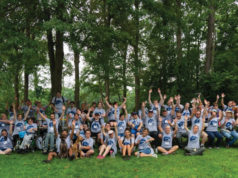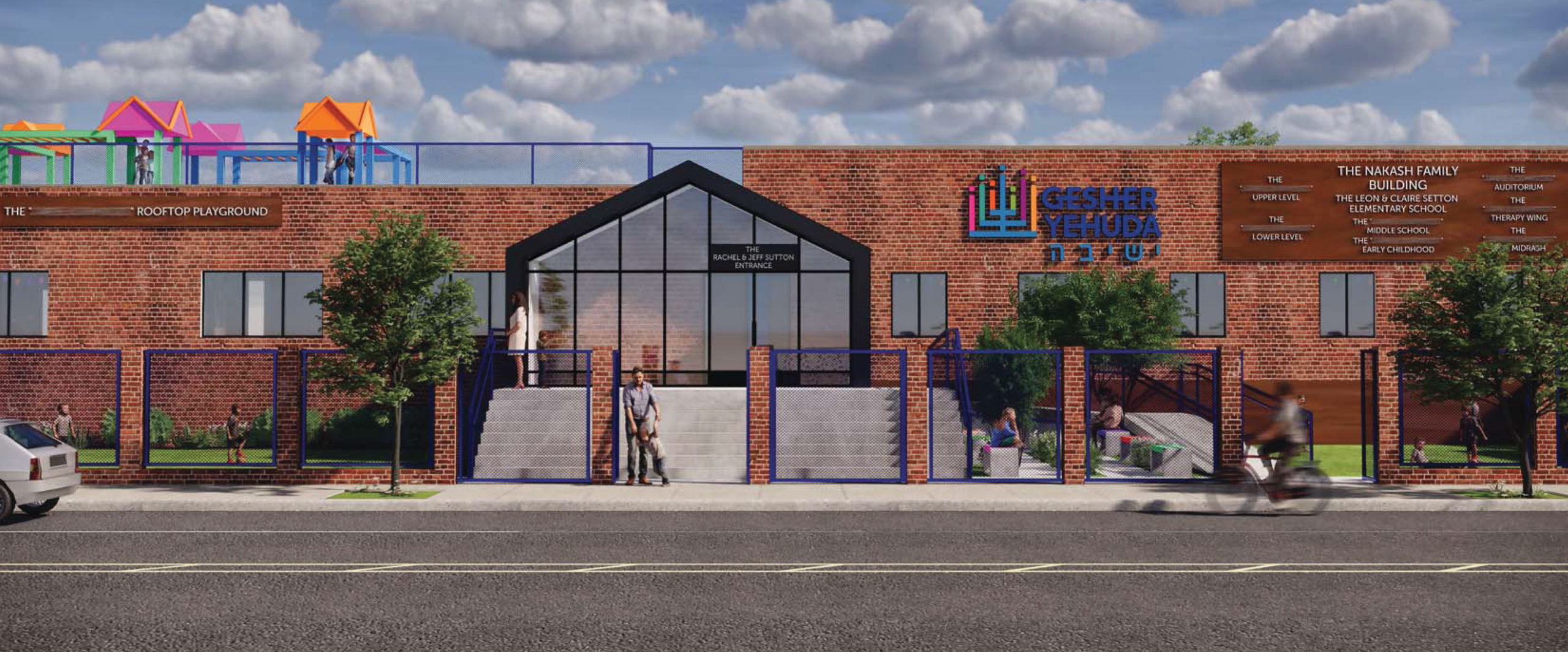
SOPHIA FRANCO
Two men sit at the end of a dock, fishing alongside each other. One catches plenty of fish; the other guy’s line stays empty all day. “What are you using as bait,” the first guy asks, while admiring his fresh bucket of fish. “Me, I got my favorite cherries from the fruit store. I don’t know why the fish aren’t biting.
What are you using?”
“Me? Worms, of course. You may like cherries, my friend, but fish, they like worms.
If you want the fish to bite, you have to give them what they like—not what you like.”
Following King Solomon’s direction, we learn that we are responsible to teach each child according to their own way. In Hebrew, חufrsנhpוkg rgbkךlubj – Chanoch l’naer al pi darco. Thirty years ago, the options for a child having speech delays, focusing issues, or organizational problems were practically non-existent. There were special schools, but they were for the severely disabled. There were early childhood programs for delayed toddlers, but the children aged out before kindergarten started. There were middle school programs, but they began in the fourth grade. For an otherwise “normal” five or six-year-old who needed some extra attention or a more personalized education, there was nowhere to turn.When Claude and Jack Setton found themselves in the midst of this search, the year was 1993. Armed with the determination only a parent can muster, an exceptional speech therapist who was willing to run the program, and a son who needed a school of his own, Gesher Yehuda (GY) was born.
In a warm and loving environment, GY, located on Avenue T in Brooklyn, introduced small classes, individualized attention, and a curriculum tailored with ingenuity and flexibility towards each student. Age appropriate skills and Jewish heritage are emphasized. Professionals identify and use students’ strengths to expand knowledge and confidence. Claude Setton remembers, “That first year we had just six students and Vivian Stok in charge, who was the most incredible principal for 20 years. By year two, there were 18 kids, and by year three, 36. Our son attended the school for only two years. When he began kindergarten, he was unfocused and distracted, and tested in the bottom ten percentile. When he left 24 months later to attend the Yeshivah of Flatbush 2nd grade, he tested in the 98th percentile. That is not a typo. He never needed a tutor or resource room. He went on to win awards, get a scholarship to an honors college program, to marry and have beautiful children. I often ask myself how this is possible. Maybe Hashem put us where we needed to be to make this school a reality. Maybe he just needed to learn how to learn. Maybe, just maybe, miracles happen here.”
Today, Gesher Yehuda offers a loving and empowering atmosphere to almost a hundred students each year. Graduates thrive, just like Claude’s son did. They go on to attend mainstream high schools and colleges, they get jobs, run companies, marry and give back to the community who supported them when they needed it most. Make no mistake. This is by no means a “special needs school.” This is a school for children with learning challenges. Jack and Claude Setton are steadfast, and still involved in every decision and every giant step, each move a “thank you” for what the school did for their family.
Jack recalls, “When we went out looking for a school for our son, the options were horrific. When I saw the impact Gesher made on my child—in just two years—I knew this was important. We want these kids to reach their greatest potential. Joe Beyda A”H explained it to me. He said that it’s not the kids that have disabilities, it’s us. The kids are just challenging us to teach them differently.”
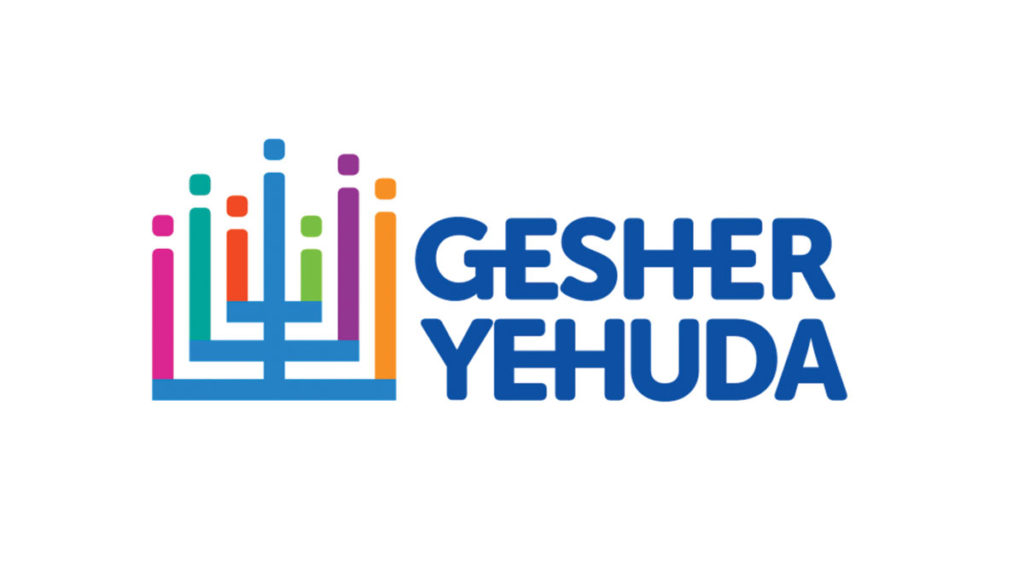
A FRESH OUTLOOK
Eileen Sutton, a longtime trustee, has always been very involved in the school, and is also a grandmother of two of the graduates. She explains, “What is the child’s future if they don’t have the right education? Grandparents have wisdom and retrospect that some young parents don’t have. The parent may think that by sending their child to another school they are erasing a stigma, but I can tell you from experience that at GY, it is the exact opposite experience. Dealing with the problem when the child is young is easier and far smarter than dealing with the exponential problems that happen later. Instead of the child feeling outcast with teachers and students that can’t cope with them, here the child is receiving the unconditional love and support of both their parents and their educational team. These kids are fully capable of learning and being on grade level but often suffer through school, and they are paying the price. Sometimes they are labeled uncooperative, mischievous or bad kids, but they are often living with ailments the parents are just not addressing.”
Eileen continues, “I was helping a family who had a baby born with multiple challenges and delays. I met her when she was four years old. I said to her father, ‘She’s ‘lucky to have you as parents.’ He answered, ‘no, we are lucky to have her.’ This child is thriving because her parents gave her that message, over and over again, not with words but with actions. When she came home from school and told her father she made a friend, he cried. He showed his love by giving her the right education. GY teaches by ability not by age. The teachers develop unique programs for each child, whether for cognitive, attention, language, or developmental deficiencies. The kids are thriving, Baruch Hashem! Yes, they think differently, and sometimes lack the filter we all use to protect ourselves, but later in life this out of the box method of problem solving can become an asset, and a fresh eyed approach to a better life.”
THE SCHOOL
Almost 30 years old, Gesher Yehuda is at the forefront of proactive education. Its innovative, customized curriculum makes the students feel comfortable in their own skin, and gives the kids a chance to grow at their own pace, filling their toolbox with the instruments that are vital for their future. Creating this safe educational environment without sacrificing community values and traditions is the key for these kids, helping them to discover and grow their talents and capabilities. GY helps kids develop pride and confidence. More often than not, the kids are integrated into mainstream schools, and graduates go on to lead emotionally and academically healthy lives.
Jack Setton continues, “In 2008, Frieda Tawil, from the Sephardic Community Center and longtime Gesher Board Member, brought the Minister of Jewish Cultural Affairs from France to us because they wanted to improve upon their educational system. The French were dealing with a huge problem; when a child fell behind in school they would be placed in remedial school. The kids from the yeshivahs were ending up in public schools, and getting beat up by the Muslim students. The minister was in tears, but followed our lead, and implemented a similar program. They were so grateful, saying that talking with us was one of the most productive parts of their trip. We helped out a lot of schools around the country over the years, including yeshivahs from LA and Chicago that learned from our concept, curriculum, and syllabus. We are at the forefront of education, setting an example that communities all over the world can follow.”
Rebecca Harary, now President of Gesher, explains, “In Hebrew, Gesher means bridge—and that’s what we do. Through the customized curriculum, over time, we can bridge the learning gap and place the child back into a mainstream school on grade level. In our program the children become confident and empowered. They celebrate life, and approach their futures filled with love and self-esteem.”
THE HIGH SCHOOL
ack Setton continues, “In the beginning, I never imagined a high school. I never imagined that the need that was out there, but Joseph Beyda A”H, did. He recognized that kids who could not survive in our community schools were choosing York, Bay Ridge Prep, or other public high schools without religious background. He always had vision, and we followed his lead.”
In 2008, Yeshivah Prep High School was founded by Gesher Board Member Rebecca Harary, who established an association with Yeshivah of Flatbush High School.
Rabbi Sion Setton, principal, explains, “Our students receive a meaningful and differentiated education in a small class setting while joining the greater student body at YOF for prayers, extracurricular activities, seminars, and more. Yeshivah Prep students go on to continue their education in Kingsborough, Baruch, Binghamton, Brooklyn College, and even Israel. Additionally, they lead successful and spiritual lives both personally and professionally, with careers spanning the gamut from business to real estate, journalism, health care, culinary, cosmetology, and more. Our students are giving back to the community, and it’s beautiful. Being able to place your child in the most supportive environment, socially, emotionally and academically provides for the brightest future.”
THE MINDSET
Rabbi Eli Mansour, our Rosh Yeshiva has been working with Gesher for over 20 years. He explains, “Over the years you come to realize that individualized education is not something you dabble in. It’s intricate and complicated, and a full-time commitment to the quality of life of these amazing children. We’re dealing with a different type of child, so it’s a different approach. Gesher, which means bridge, is indeed the educational bridge that these children need to ultimately attend mainstream schools. Our teachers are extremely talented and hands on. The building is magnificent, and expanding. They’re doing an amazing job, and honestly, it’s a fact that if you don’t give the child what they need when they are young, you’ll be dealing with it forever. We’re so proud of every single graduate.”
Mrs. Deborah Katz, GY’s principal believes that any good school focuses on the basics, reading, writing and math, but at Gesher they are doing more, teaching organizational skills and responsibility, taking good midot and kindness to others seriously. Even with learning issues, students are taught to be proud of themselves, and that is the key. Dr. Eugene Miller, executive director, explains further, “What Gesher strives to do is to provide the best education for the children who need it. What we give a child is the ability to say ‘yes I can’. And if they say ‘yes I can,’ then they will. The classroom becomes kind of a magic place when you have the right therapeutic staff, and the children can blossom in ways a parent never imagined.”
THE ALUMNI
Joseph Sutton, Eileen’s grandson and Hofstra graduate, attended GY for 6th, 7th and 8th grades. On behalf of the school, Joseph spoke recently at Hathaway Shul, recalling his experience and the path they helped him forge. He said, “The brochure has all the buzzwords: i.e., small classrooms, individualized attention, certified special education teachers and occupational therapists, but in order to appreciate the school, you must first understand the student. He is born different, with a set of challenges that makes learning in a classroom more difficult, and society reminds him of this every other day. When he’s home he’s mocked by his siblings, either for taking medication in the morning, or because his mom has to talk to him at a slower pace. On Saturday his friends hide while he seeks, and they ultimately ditch him. And nobody at the Shabbat table pays attention when he speaks; ‘Tell me privately after dinner,’ his father would say. All of these little comments have a big impact, and by the time he gets to school Monday morning, his confidence is shot, and his self-esteem is reduced to zero.
“The teachers at GY know this, and it bothers them. They think about it on their drive-in, and race into the classroom Monday morning armed with an individual curriculum designed to focus on the child’s strengths instead of his weaknesses. Drawing organic confidence and building back self-respect, they use that momentum to help him retain other subjects. That’s their approach—developing—not teaching. They are able to have this approach because they know these kids, their parents, the shul they go to, the friends they want to have, and the friends they need to have. That’s why they put so much energy into the development of each student, not just so they get good grades, but so they get a job right out of college, find a spouse, and build a family.
“My problem wasn’t learning—I was actually an early bloomer, but when it came to organization I was lost and overwhelmed, and was often falling behind. In Gesher I got a clean slate. No one knew me, or who my parents were. I was in a class with ten kids, and they were just, nice. There was no crowd to chase; I could just be myself. My experience is not about what they did, it’s the environment they created. My teachers knew how and when to help me, teach me, and poke fun at me. Seeing them break from teaching and level with me and my friends in the classroom helped boost my confidence. They understood that if a kid doesn’t respond there are deeper issues that have to be solved. Their mindset was—you can’t take the car where you want to go if the engine isn’t even on.
“Not exactly ‘peaking’ socially, I sought out a new opportunity for the summer before 10th grade. Since I was a little kid with a globe in my room, I always wanted to travel. I found a summer travel camp and even though I didn’t know a single person there, I decided to go. I arrived at the airport and was shaking. It suddenly hit me that I had committed to six weeks with these kids. I closed my eyes and channeled my experience at Gesher when I entered a new environment with a clean slate. I decided to push through with this philosophy and quickly made friends with every camper before the plane took off. I learned a lesson at that moment that has stayed with me ever since. Be yourself and keep pushing, and whoever follows along, follows along. If you’re comfortable being who you are and things don’t go your way, you learn that it’s not you—its them.”
Joseph opened his speech with a quote, first coined by the director of marketing for Craftsman tools, “People don’t buy drills, they buy holes.” The message is to focus on the results. Gesher focuses on the results, and because of this foundation their graduates are able to thrive well after graduation.
THE FUTURE
Michael Cayre, along with Gesher Vice President Alan M. Maleh, and so many generous community donors are spearheading a capital campaign to meet the demanding needs of our community. Rebecca Harary said, “Looking forward, we want to service these kids in the best way possible, so we are excited to be expanding and enhancing Gesher to encompass an entire city block. Our plans include doubling the total number of available classrooms, building a state-of-the-art therapy center, auditorium, lunchroom, computer room, and Beit HaMidrash. We are adding an early childhood learning center, and additionally, an enclosed rooftop playground. There will be an experiential learning kitchen, science room, woodworking room, and student library. All of this excellence will be paired with our commitment to the pure principles of our heritage, avoiding the negative messages present in so many non-community schools. With positive reinforcement we hope to help our students to succeed across all aspects of their lives.”
Gesher Yehuda believes in breaking down the obstacles that stand between students achieving their fullest potential. Every child deserves that opportunity, and GY is the best at their game. With the new building and services, those opportunities will grow exponentially. Gesher administrators help parents with the evaluation process, from the application language, to DOE meetings. They inform parents of deadlines, and develop payment plans to suit their needs. They become a partner with both parent and child, the whole way through. Children are like sponges. Whatever effort you put in, you surely get out.
Claude Setton concludes, “We owe this community so much for always stepping up to support the children of Gesher. There are so many people to thank, from the amazing women who worked tirelessly at our bake sales to our incredible donors and all the amazing people who served on our board all these years. This school is magical. The kids come in insecure, with their heads down, and walk out like shining stars. I know that G-d is watching over us.” Jack, resolute all these years, continues, “When we started this, we had no idea how it was going to grow and blossom. You do the work, and you never know who is going to reap the benefits in the end. What always struck me is our community’s willingness to help all the kids. Kol echad, b’lev echad. (We are all together, with one heart.)”
THROUGH THE YEARS
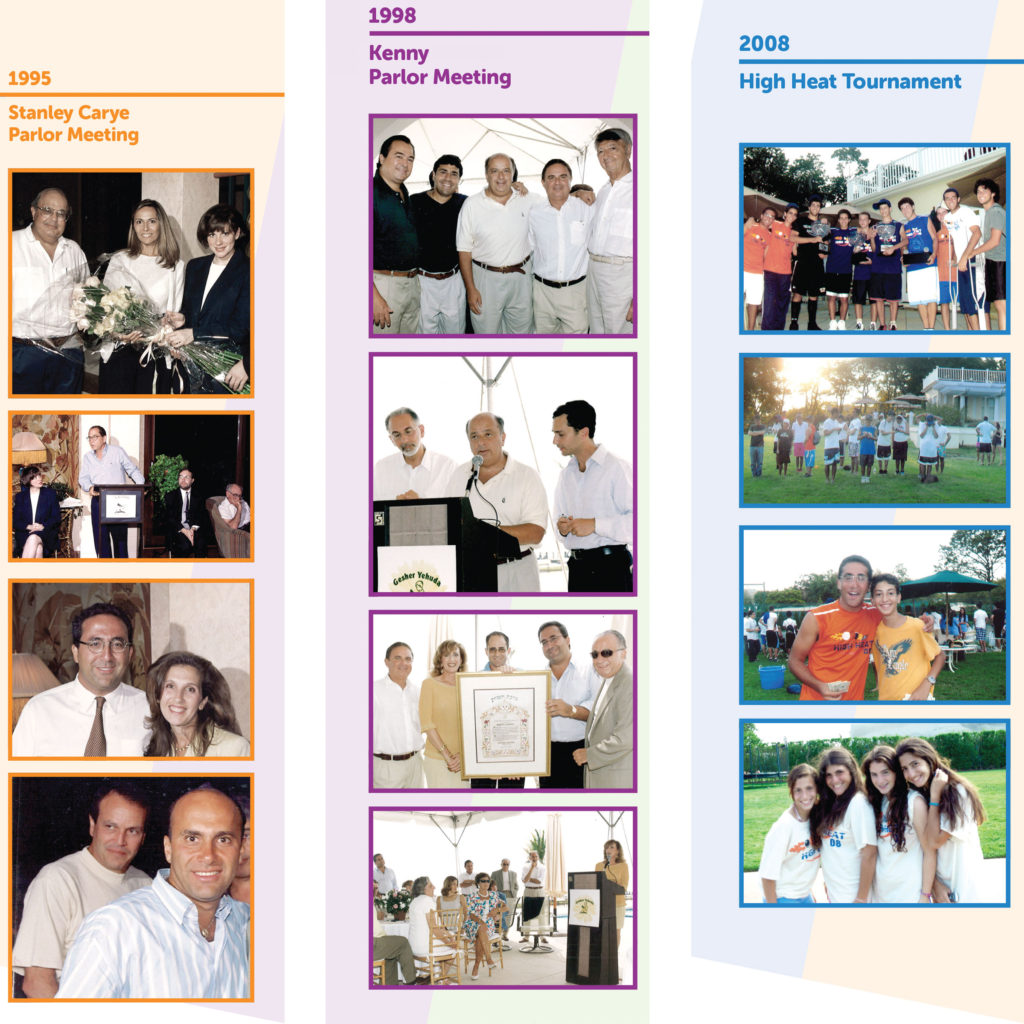
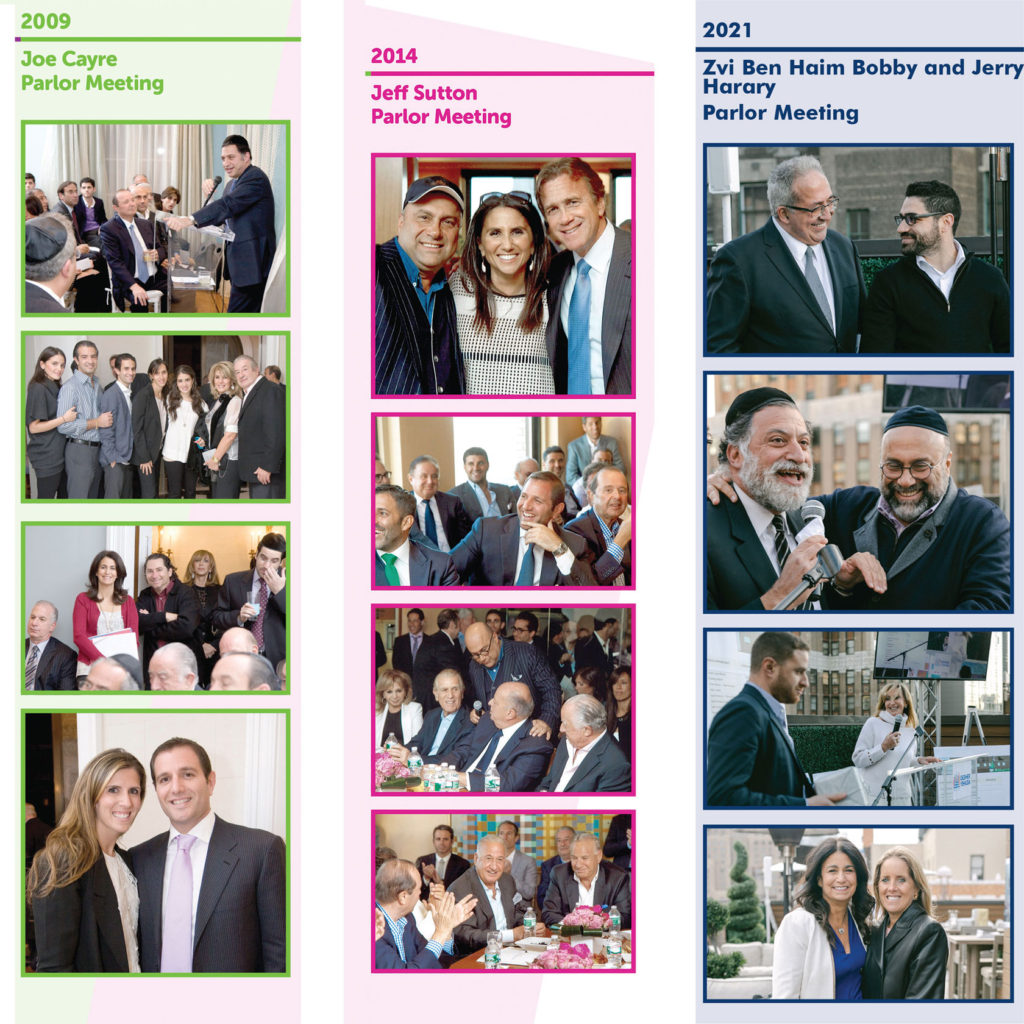
Sophia Franco, 54, is a mom and grandmother who has been feeding her love of reading and writing for as long as she can remember through poetry, community journalism, and songwriting. She has written many songs with Yaakov Shwekey but the first, I Can Be, has become an anthem for the Special Children’s Center and the community at large.

